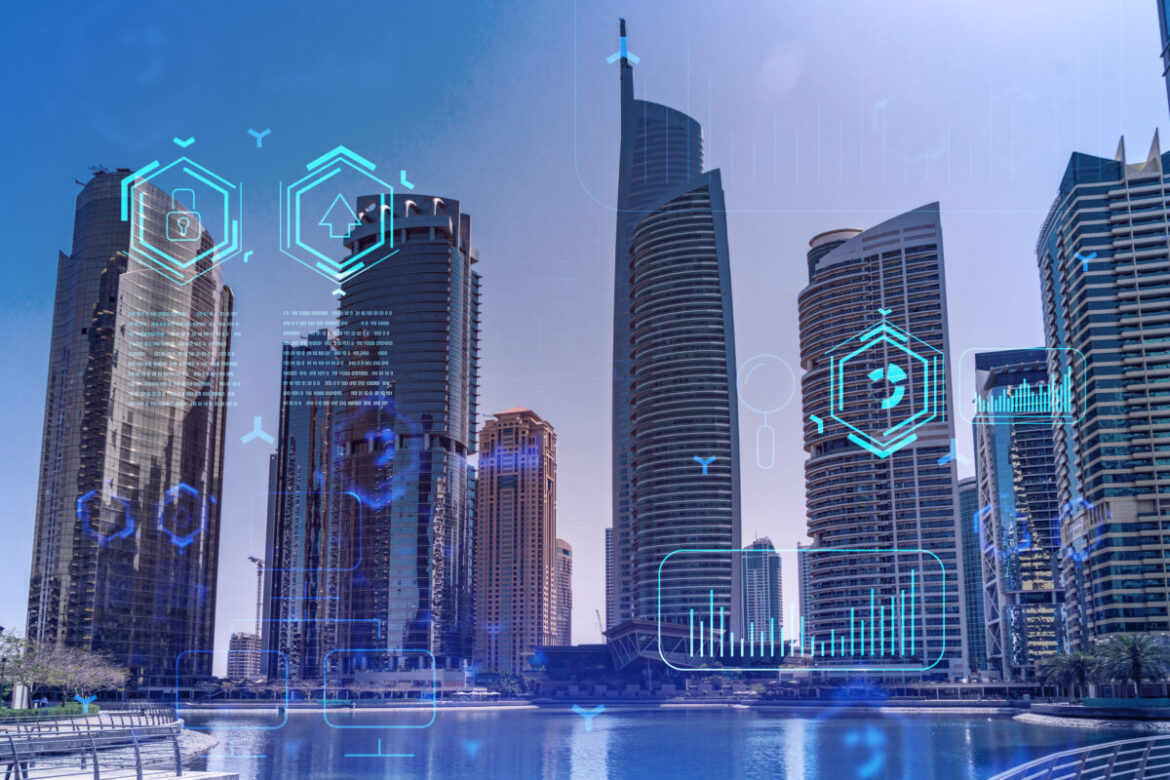If there’s one thing that stood out, such as in the World Economic Forum’s recent agendas on “Intelligent Economies,” it’s that artificial intelligence (AI) has moved from theory to reality across the Middle East region.
Whether it’s in the skyscrapers filling the city of Dubai to more rural fields in countries like Jordan, AI is quietly becoming one of the region’s main economic engines. It is no longer speculation but a reality that further is seeing strong implementation across the diverse region.
Various sources, such as PwC, predict that AI can have a +$300billion impact in the region by 2030. The Future of Jobs Report 2025 projects 170 million new jobs created globally, 92 million jobs displaced, yielding a net gain of 78 million jobs. With the Middle East, with Egypt alone home to almost 120 million people alone, much of the opportunities in the future will see the region play a part in AI’s economic contribution.
How will this be achieved?
1. The Affluent Gulf’s Current Bold Tech Investments

The Gulf Cooperation Council (GCC) nations – Saudi Arabia, United Arab Emirates (UAE), Qatar, Kuwait, Bahrain, and Oman – are overall embracing AI full-on. First, the UAE’s AI Strategy 2031, launched in 2017, which saw it also include the world’s first AI Minister, now spans across education, health, governance, and energy transformation; a visible sign of implementation can be seen with plans for Abu Dhabi to have one of the world’s largest AI data centres.
Neighbouring Saudi Arabia, with its own Data and AI strategy launched in 2020 that aligns with its national transformation strategy, Saudi Vision 2030, has seen exciting initiatives. One was back in 2017 when the country was the first to grant a robot citizenship at its Future Investment Initiative (FII) Forum.
Recently, Saudi Arabia this year launched HUMAIN, the Kingdom’s AI champion by the Public Investment Fund (PIF). Announced and chaired by HRH Crowne Prince Mohammed bin Salman himself, HUMAIN will provide a comprehensive range of AI services, products, and tools, including next-generation data centres, AI infrastructure and cloud capabilities, and advanced AI models and solutions. HUMAIN will also offer one of the world’s most powerful multimodal Arabic large language models (LLMs) – all according to its website.
2. Emerging Economies: Leapfrogging with Purpose
The rest, beyond just the Arabian Gulf, are using AI to address their own challenges and foster opportunities as well, through alignment of their own national transformation programs coupled with necessity. These include:
- Egypt, which launched its own AI strategy just in January this year, aims to see it advance sectors such as healthcare and fintech, with the latter helping bring further financial inclusion to both individuals and businesses
- Jordan launched its five-year AI strategy with 68 targeted projects aimed at enhancing Jordan’s AI capabilities across multiple sectors, such as healthcare and logistics
It is worth noting that North African countries such as Morocco, Tunisia, Algeria, and Egypt, which are members of the African Union (AU), are collectively with their African neighbours also spotlighting the importance of AI. This was notable last year when the 55 AU member states approved the AU AI Continental Strategy in July last year.
3. In practice beyond just economic government strategies across sectors in the Middle East?

How has AI been in practice beyond just being priorities in government strategies aiming to boost economic development? It has been impactful across a wide range of sectors thus far across the Middle East region.
For instance:
- Agriculture – in Morocco the country is utilising smart agriculture, whereby much of the country is increasingly using AI to optimize Morocco utilizes AI to optimize agricultural yields. This has seen soil conditions being analysed by drones and sensors and also addressing crop diseases and recommending relevant solutions.
- Healthcare – in the UAE, AI in the Emirates Healthcare System (EHS) saw accurate diagnosis of 532 patients across three years, as well as AI-enhanced diabetes management, reducing diagnosis and treatment times for diabetic patients to just two days.
- Logistics – one of the world’s busiest trade corridors – the Suez Canal in Egypt – is using AI to help improve efficiency for its ships and customers, as well as helping further improve its surrounding environment.
- Financial services – The use of AI in the banking sector is predicted to contribute as much as 13.6 per cent to the region’s gross domestic product (GDP) by 2030. This has been seen in particular with the growth of financial technologies (or ‘fintech’), with a growing increase of them powered or indirectly influenced by AI across its subsectors – such as wealth tech, payments and beyond.
- Smart Cities – Smart city infrastructure blends AI with IoT and blockchain to manage traffic, energy, and services. Dubai’s “Smart Dubai” initiative, Qatar’s Lusail City, and Saudi Arabia’s NEOM projects are some vivid examples. Even Egypt’s new administrative capital that will replace Cairo as its capital is planning to be built as a smart city.
The future of AI in the Middle East is a reflection of what the rest of the world is trying to achieve. For as socially diverse as the region is – from the affluent Gulf to the more developing parts outside of the GCC – one narrative is consistent, and that AI is not only here to stay as a vision but is being implemented across different facets of people’s lives for the better.
The post From Ambition to Inclusive Growth: Artificial Intelligence in the Middle East appeared first on The Fintech Times.



